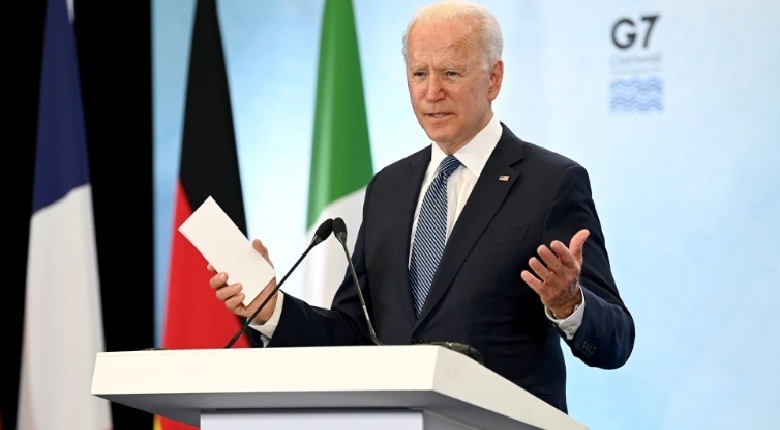On Sunday, US President Joe Biden declared that America is back to the table. He joined his first Group of Seven summit and the world leaders vowed to confront China, boost global infrastructure, and donate 1 billion vaccine doses to the rest of the world. Biden issued a press conference after meeting with US allies. He said, “I conveyed to each of my G-7 counterparts the U.S. is going to do our part. America is back to the table. The lack of participation in the past and full engagement was noticed significantly, not only by the leaders of those countries but by the people in the G-7 countries”. President Biden called the meeting extraordinary collaborative and productive. He said that ending the Covid-19 pandemic to ensure an equitable and inclusive global economic recovery was the foremost priority for the US and its allies.
The leaders of the G-7 countries include the US, the UK, Canada, France, Germany, Italy, and Japan. G-7 members were committed to crack down on the use of forced labor, fighting ransomware, and fight against corruption while calling out China and Russia for human rights abuses. President Biden said, “We know that corruption undermines the trust in government, siphons off public resources, makes economies much less competitive, and constitutes a threat to our security”. He left the summit on Sunday morning and flew to meet Queen Elizabeth at Windsor Castle before heading to Brussels for meetings with NATO and European Union leaders. Point to be noted that Biden will conclude his first trip overseas at a summit with Russian President Vladimir Putin in Geneva on Wednesday. He informed reporters that he agrees with the Russian President that US-Russian relations are now at a low point.
President Biden also said, “Russia has engaged in activities which we believe these are contrary to international norms but they have also bitten off some real problems they’re going to have trouble chewing on”. He delivered his words about the issue of forced labor and said, ”The US and the G-7 nations will continue to work together including through our own available domestic means and multilateral institutions to protect individuals from forced labor and to ensure that global supply chains are free from the use of forced labor. I think we’re in a contest, not with China per se, but a contest with autocrats, autocratic governments around the world as to whether democracies can compete with them in the rapidly changing 21st century. And I think how we act and whether we pull together as democracies are going to determine whether our grandkids look back 15 years from now”.
